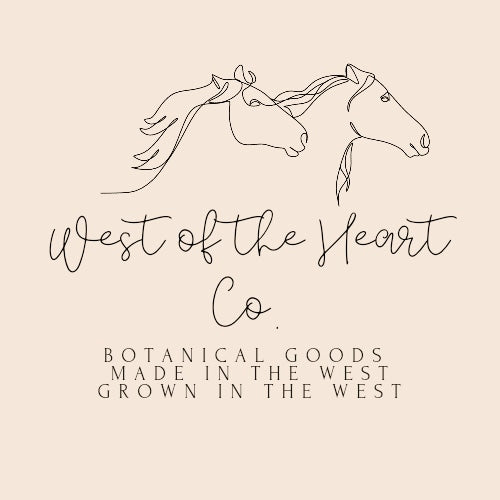
Gardensteading: A path to Sustainable Living and Food Security.
Gardensteading: A Path to Sustainable Living and Food Security
In a world where food security and sustainability are becoming increasingly important, the concept of **gardensteading** is gaining momentum. But what exactly does "gardensteading" mean? It's the practice of growing as much food as possible on your own property without owning a large farm or homestead. Whether you live in a suburban neighborhood, an urban apartment, or on a small rural lot, gardensteading empowers individuals and families to take control of their food production, reduce their carbon footprint, and contribute to a more resilient and sustainable community.

Promoting Food Security
One of the most significant benefits of gardensteading is its ability to increase personal food security. By growing your own fruits, vegetables, and herbs, you can take a step toward self-sufficiency, ensuring that you have access to fresh, nutritious food, even in times of crisis or supply chain disruptions. Global events like natural disasters, pandemics, or economic downturns can often create food shortages or higher prices at the grocery store. When you're growing your own food, you're less vulnerable to these uncertainties.
Additionally, growing a variety of crops ensures that your diet is diverse and nutritious. You have the ability to choose for different varieties of your favourite foods, often growing types that cannot be found in the grocery store. Not only do you increase the diversity of your diet but also the diversity in your own backyard and environment.
Improving Your Health and Well-Being
Another compelling reason to gardenstead is the positive impact it can have on your physical and mental health. Growing your own food encourages you to eat more fresh, whole foods. Homegrown produce tends to be more nutritious than store-bought alternatives, as it often retains more vitamins and minerals due to shorter time from harvest to plate. When you garden, you’re more likely to incorporate a wider variety of vegetables into your meals, which can lead to improved overall nutrition.
Moreover, gardening is a wonderful form of physical activity. Planting, weeding, watering, and harvesting all require you to be physically active, helping you stay fit and healthy. It’s an excellent way to get outdoors, enjoy fresh air, and reconnect with nature, which has been shown to reduce stress and improve mental well-being. The satisfaction of watching your plants grow and knowing you're providing your family with healthy, homegrown food can give you a sense of accomplishment and purpose.
Contributing to the Community
Gardensteading isn't just about personal benefits; it also has the power to strengthen local communities. When more people embrace the idea of growing their own food, it can lead to a greater sense of community cooperation and connection. Sharing gardening tips, surplus harvests, and even seeds with neighbors can foster a spirit of collaboration and mutual support.
Additionally, community gardens—shared spaces where neighbors collectively grow food—have become increasingly popular. These gardens are often located in urban or underutilized spaces and can be a lifeline for people without access to their own garden space. Not only do they provide fresh, healthy food to participants, but they also create green spaces that improve the quality of life in cities.
By growing your own food and participating in community gardening initiatives, you help create a more sustainable and resilient local food system, reducing the dependence on industrial agriculture and long supply chains. This, in turn, benefits everyone by promoting cleaner, more ethical food production and supporting local economies.
Reducing Your Carbon Footprint
One of the less obvious but still significant benefits of gardensteading is the reduction in your carbon footprint. When you grow your own food, you significantly reduce the need for food transportation, packaging, and refrigeration—all of which contribute to greenhouse gas emissions. With gardensteading, what you grow doesn't need to travel hundreds or thousands of miles to reach your plate, and it’s free of the wasteful plastic and packaging that often accompanies store-bought produce.
Furthermore, growing food at home allows you to adopt eco-friendly gardening practices like composting, rainwater harvesting, and minimizing the use of synthetic fertilizers and pesticides. These practices help to enrich the soil, conserve water, and reduce pollution, making gardensteading a sustainable choice for both you and the environment.
Cost Savings and Economic Benefits
While gardensteading requires an initial investment of time and resources—such as seeds, tools, and soil amendments—the long-term savings can be significant. Once established, your garden can produce a substantial amount of food at a fraction of the cost of purchasing it from the store. Even in small spaces, you can grow herbs, tomatoes, leafy greens, and other vegetables that would otherwise add up at the grocery store.
Moreover, gardensteading can be a way to generate extra income. Many gardeners sell excess produce, flowers, or homemade preserves at local farmers' markets or to neighbors. This can help to offset the costs of gardening supplies or even turn into a small-scale business.
Why Gardensteading Matters
Incorporating gardensteading into your life isn’t just about saving money or becoming more self-sufficient. It’s about taking control of your food, improving your health, supporting your community, and reducing your environmental impact. As more people embrace the idea of growing their own food, we can create a more resilient and sustainable future where food security is not a privilege but a reality for everyone. Whether you have a backyard garden, a few pots on a balcony, or space in a community garden, gardensteading offers countless benefits—one plant at a time.
If you’ve ever considered growing your own food, now is the time to get started. The rewards are well worth the effort. Happy gardensteading!
If you aren't sure where to purchase seeds I highly recommend purchasing through West Coast Seeds! Reliable seeds, great customer service and supporting community work! https://bit.ly/4aG8c1q
Copy and paste into your browser to begin your gardening journey.
Note this post contains affiliate links -these help support me so I can keep doing what i'm doing! 
